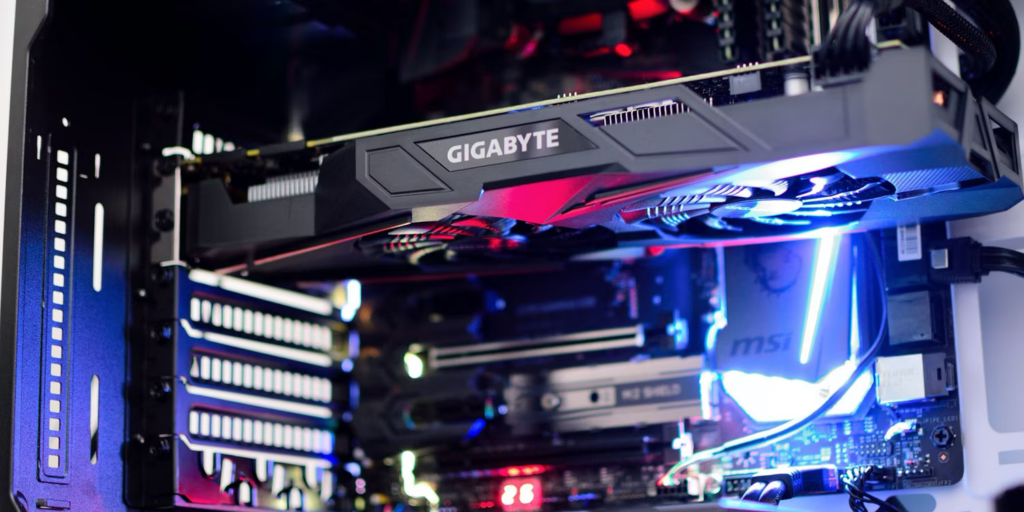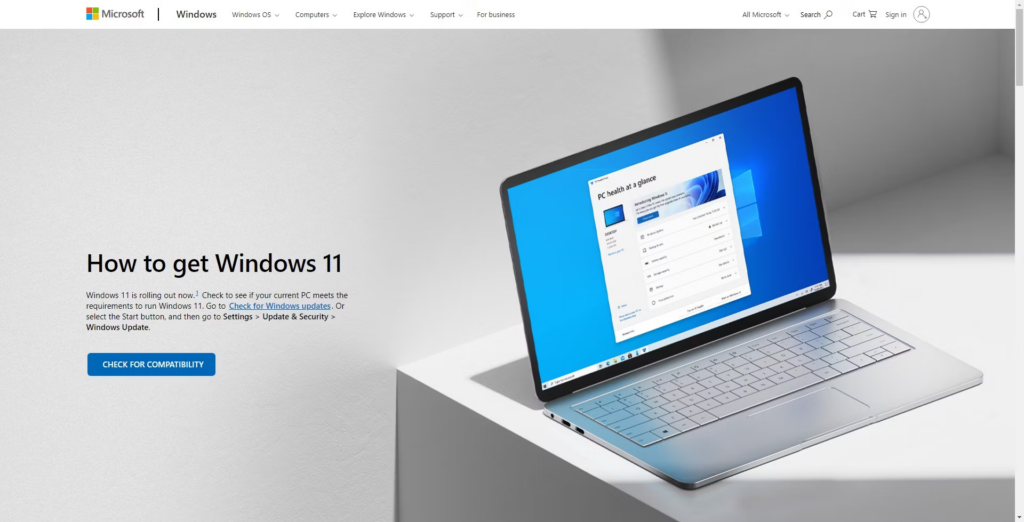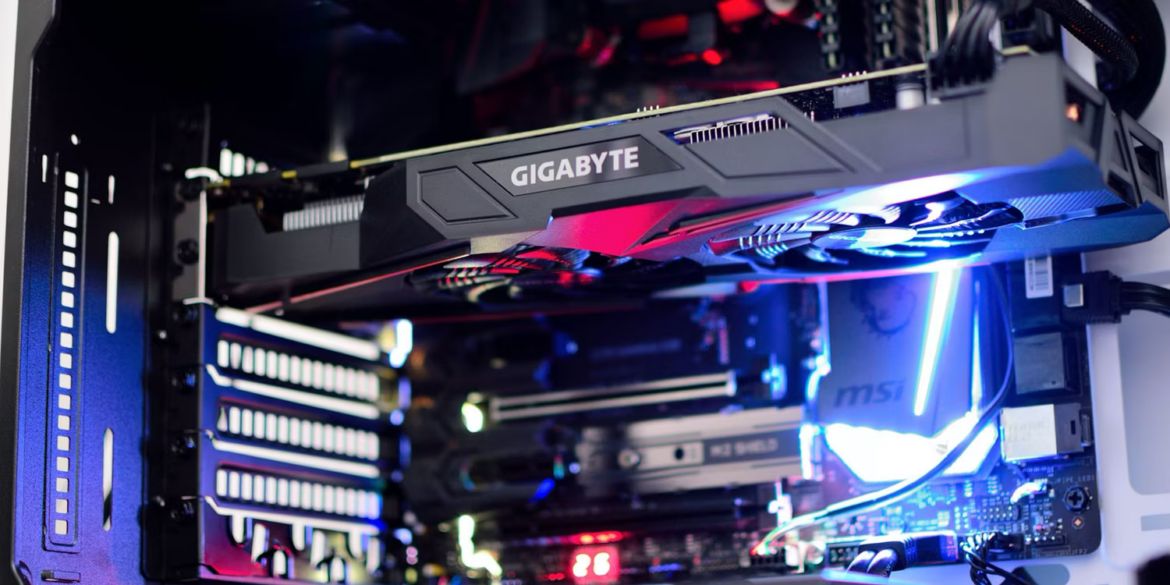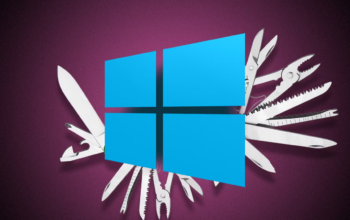Are you in need of a speedier computer but unsure of which Upgrades will Improve Your PC performance ?To find out, use our PC upgrade check list.

Is your computer fast enough to complete the task at hand? Do you find that Photoshop launches slowly or sputters to a halt when you try to use it? If so, a hardware update is probably in need.
But now you’re thinking about what to improve on your PC. What improvements are time-wasters and which ones offer the most value for your money? Our selection of the best PC upgrades is provided below.
1. The Benefits of RAM Upgrades

Adding more RAM is the quickest and most practical approach to enhance your computer. It’s simple, inexpensive, and doesn’t require a lot of technical know-how to do on almost any desktop computer. Additionally, it’s one of the biggest benefits if your laptop supports it.
This is the place to start if you’ve never opened a PC case before.
RAM upgrades instantly improve the performance of almost all sluggish PCs. More RAM is preferable for resource-intensive applications like video editing and gaming. Even if you rarely use your computer, more RAM will enable you to run more background programs or open more browser tabs.
- 4GB is the absolute minimum. With up to 10 browser tabs, a little picture editing, and video streaming, it’s suitable for everyday usage.
- But you shouldn’t accept this unless you’re a pretty light user. You will notice a significant boost if you update to 8GB. This is ideal for processing RAW photos, mid-level gaming, and surfing with up to 30 tabs open.
- To achieve the greatest results, use 16GB for activities that require more work. With this much RAM, professional-level tasks like media editing and intense gaming will run smoothly.
To enhance the performance of your PC, you might also look at Superfetch on Windows and how it affects your RAM, as well as the finest DDR4 RAM.
Memory manufacturer Crucial has a PC upgrade advisor program that will assist you choose the sort of memory you require if you need to know what RAM is compatible with your computer.
2. Take into account replacing the graphics card

This is number two on the list, although if you’re a dedicated gamer, you should probably upgrade it first. You might never need to upgrade it at all if you aren’t a professional gamer, 3D modeler, or 3D animator.
PC makers frequently choose integrated graphics cards over discrete graphics cards since doing so is a simple method to save costs.
And on contemporary systems, integrated graphics is good enough for most people. You can use it to work in Photoshop or view 4K video. On Steam, just 10% of users even play games with integrated graphics.
However, upgrading to a GeForce RTX 3070 or similar graphics card can give you a significant performance gain if you really want higher graphics performance for gaming or VR work. At gpu.userbenchmark.com, you may contrast the performance of specialized cards with your present choice.
3. Upgrade your storage drive and improve PC Performance

You should update your hard drive for one of two reasons: either you need more capacity or you want it to function more quickly.
One of the most practical computer improvements you can do is to update from an outdated hard drive to a solid-state drive. These are much quicker than ordinary drives because they employ flash memory rather than a spinning disk.
The typical write speeds for a 5400RPM drive are up to 100Mbps, a 7200RPM drive is up to 150Mbps, and a solid-state drive is over 500Mbps. High-end SSDs feature extraordinarily fast write rates of 3300Mbps and more, such as the Samsung 970 EVO Plus.
A speedier data drive ultimately affects the entire system. It results in quicker startup times, quicker app loading times, quicker game launch times, and improved responsiveness in apps that work with huge files (like video editing or RAW photo editing).
Space is another justification for an upgrade. You’ll need to replace your storage with a larger one if you’ve tried everything to make more room for it but are still often running out of room. A full disk can affect performance in addition to making it hard to save fresh data. Try to keep 10GB of free space available for the operating system at the absolute least.
Solid-state drives used to be often criticized for having significantly lower capacity and being more costly than hard disk drives. It’s not really a problem anymore.
Take a look at the SanDisk SSD Plus for an excellent illustration of how 1TB SSDs are already very widespread and relatively inexpensive. That ought to be plenty for many individuals, but if you want extra room, you might want to think about a hybrid drive. This combines the two technologies to provide you a speed/size balance.
4. Processing Upgrade
The CPU upgrade for your PC is a far more complex operation than the other upgrades we’ve discussed thus far. It’s one of the most costly improvements and is also physically more difficult to install. There are also concerns regarding socket compatibility.
More significantly, a CPU update might not provide you the performance boost you want and isn’t always a wise idea.
You may compare the relative performances of several CPUs using the benchmark tests at cpubenchmark.net. These experiments often demonstrate that little modifications don’t result in significant advancements.
A considerable improvement, such as going from an Intel Core i3 to a Core i5, or from an earlier generation to a newer one, is required to make a processor worthwhile. Don’t choose anything merely because its clock speed is higher.
The cost of processors may necessitate upgrading your motherboard (which in turn might require you to buy new RAM). Your motherboard could require a BIOS update to function properly even though it is technically compatible with a new processor. Check before you buy because it might be a nuisance.
In the end, you may want to think about purchasing a brand-new system if your CPU is the system’s performance barrier.
5. How Changing Your Software Can Boost PC Performance

Most likely, your computer’s programs are set to update automatically. If not, you most likely click the Update button as soon as you are informed that new software versions are available.
This is generally the proper course of action. Although not usually. The version number is frequently shown for software in the form of Major. Minor. Revision. Therefore, if an update is 0.0.1, bug fixes are probably included. If it’s 0.1.0, it probably contains improvements and a few minor new features. Updates to minor features and revisions should be installed immediately.
Major changes, however, which result in a change to the complete version number, are another story. New versions of applications nearly always consume more resources than older ones, so if your PC’s hardware is already at capacity, you should take care of that first.
The same is true for upgrades to operating systems. Whole new versions are not necessary, but routine incremental upgrades are necessary for performance and security reasons. They will probably have problems and operate slowly on your machine.
Hold off on operating system updates if your PC is functioning normally unless you are certain they won’t result in a downgrade.
Software modifications are frequently a wonderful way to feel like your machine is quicker without spending any money. A excellent place to start is with our tutorial on how to make Windows 10 quicker.
What other PC components should you upgrade?
Since it is where all the other components of the computer attach, upgrading the motherboard is the most challenging. If you have your heart set on a new processor that is incompatible with your present arrangement, it is only worthwhile to take into account. It won’t significantly increase your speed on its own.
There are more factors to take into account. For example, a serious photographer would undoubtedly gain more from a better monitor than from speeding up Lightroom. A writer might also increase their productivity by investing in a mechanical keyboard.
Consider how you may improve your PC experience rather than concentrating just on performance. Although speed is crucial, it is not the sole factor.
Make sure the components you purchase work with the kit you already have. PCPartPicker is a useful PC upgrade checker that aids in component identification and shopping.
Best PC Upgrades
We advise concentrating on RAM, SSDs, and graphics cards when choosing the finest components to update on your PC. The best updates are usually those that are specifically catered to your needs. You can choose the appropriate hardware upgrade by taking a moment to identify the problems in your system.
Author’s Recommendation
How to Fix Windows Updates When It’s Stuck in Windows 10
Frequently Asked Questions
1. Should you increase your CPU or RAM to boost PC performance ?
Large levels of RAM will assist with multitasking while also enhancing performance in demanding applications and processes. It is important to note that a CPU will almost always be more expensive than RAM. Although it is feasible, it is rarely a good idea to spend more money on RAM than your CPU. I expect that you got a clear answer.



